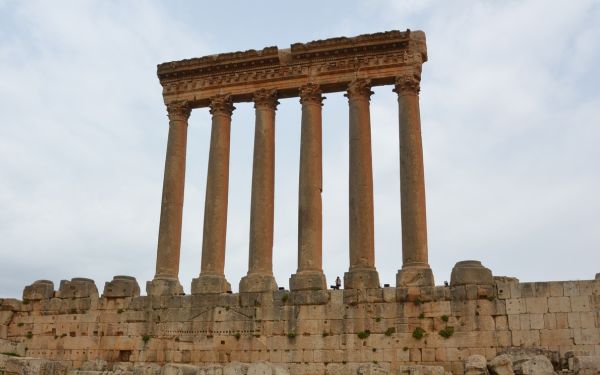ICOMOS Statement on immediate and grave threats to Lebanon's cultural heritage
 ICOMOS deplores the lives already lost and threatened by the deterioration of the situation in the region and expresses its serious concerns over the critical threat to Lebanon's cultural heritage, tangible and intangible, in the latest conflict escalation in the Middle East since mid-September 2024.
ICOMOS deplores the lives already lost and threatened by the deterioration of the situation in the region and expresses its serious concerns over the critical threat to Lebanon's cultural heritage, tangible and intangible, in the latest conflict escalation in the Middle East since mid-September 2024.
The Lebanese civilian population is again drawn into yet another cycle of death, suffering and displacement. Both Lebanese national and World Heritage sites are in danger - and first reports of damages are emerging.
Lebanon's cultural landscape stands as a testament to millennia of human achievement, embodying pivotal stages in history, architectural mastery, and unique cultural traditions. These sites are not merely isolated monuments; they are integral to vibrant, living communities.
While Tyre and Baalbek are the World Heritage sites most at risk, other properties such as Anjar, Byblos, Ouadi Qadisha and the Forest of the Cedars of God, and the Rachid Karami International Fair-Tripoli (RKIF), as well as several Tentative list sites (such as the castles of Mount Amel), are also under potential threat from rapidly shifting airstrikes, bombings, and shelling.
On 6 October, rockets struck in the immediate vicinity of Baalbek World Heritage site, regarded as one of the largest and best-preserved examples of ancient Roman architecture world-wide and strikes continue. Negative impacts on these fragile historic structures cannot be excluded and would represent a loss for the whole of humanity.
Numerous other national monuments and heritage sites, throughout Lebanon, particularly in the Beqaa Valley and southern regions, are in danger. There are reports of several historic buildings and archaeological sites being damaged. Notably, on 13 October, the Ottoman mosque in the town of Kfar Tebnit was destroyed as well as the historic Souks of Nabatiyé.
ICOMOS strongly condemns the destruction of the living fabric of towns and rural settlements, as well as the residential areas integral to the cultural context of heritage sites and the large-scale displacement of populations, whose presence gives life to the heritage, as it has dramatic repercussions on intangible cultural heritage practices and traditions.
In addition, sites are at increased risk of looting, in the absence of their custodians and guards. Access to assess the state of conservation, implement protective measures, or perform essential maintenance is limited due to security concerns - as heritage professionals' lives are at risk.
ICOMOS again calls on all parties to do all in their power to protect cultural heritage and to respect to the letter and the spirit their obligations under international law, both treaty and customary – and in particular the 1954 Hague Convention for the Protection of Cultural Property in the Event of Armed Conflict and its two protocols, the 1972 World Heritage Convention, the 2003 Convention for the Safeguarding of the Intangible Cultural Heritage and the 2001 Convention on the Protection of Underwater Cultural Heritage. ICOMOS reminds and stresses that the intentional targeting of cultural and religious sites (that are not legitimate military objectives and have no imperative military necessity), as other civilian objects, is prohibited specifically, under any circumstances, in international humanitarian law and is considered a war crime.
ICOMOS is supporting its National Committee in Lebanon, whose members continue their volunteer engagement despite the dramatic circumstances, to ensure that cultural heritage is integrated in broader civilian protection and relief strategies and to enable rapid damage assessment and protection measures as soon as possible.
The intensification of the conflicts in the area during recent weeks puts ICOMOS on high alert for the heritage across this whole region and we reiterate our position that only a cessation of hostilities can avoid further harm.
